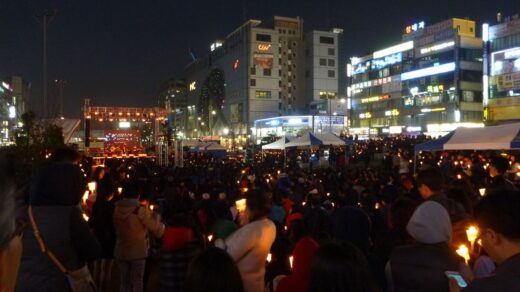Two Things to Remember About Korean Job Titles
Don’t Get Lost in the Hierarchy
By KBC Creator Steven S. Bammel
From the Korea Business Advisor column in the September 2011 issue of Seoul Magazine [EXPIRED LINK REMOVED: http://www.seoulselection.com/seoul/].
It’s easy to overestimate the changes in Korea. Sure, the economy has exploded and the standard of living has risen 200-fold in fifty years. But core values have shifted very little and to understand business in Korea, you must appreciate the pervasiveness of hierarchy in Korean society.
It All Starts with Language
Expressing oneself in Korean correctly requires the speaker to both explicitly and implicitly recognize the relative status of him or herself, that of the listener and that of third-parties being spoken about. There just isn’t a “generic” way to verbalize the language that doesn’t imply some degree of hierarchy.
From a very early age, children are taught to speak differently to and about their parents, to their friends of the same age, to those younger than them and those in the same grade… even to siblings of different ages!
As a Korean gets older, the rules become more complicated. Sometimes this hierarchy is based on age. But at other times, job position is more important… or simply the role one plays in a discrete business transaction. Commonly, the level of speech is just determined by whether one knows the other person or not.
To top it all off, the rules are often open to personal interpretation, meaning that not every Korean follows the rules in the same way as everyone else, or even the same way in every situation. They don’t even maintain perfect consistency within the same conversation sometimes.
But through it all, the way a Korean speaks does continuously communicate a perception of relative status and position.
The Most Important Part of a Business Card is the Job Title
The reason I’m making such a big deal about this is that the Korean language reflects the deep-seated awareness that Koreans have about social status and this reinforces the importance of hierarchy in the Korean business world, which is an insight that helps us understand why the most important part of a Korean’s business card is the job position.
Hierarchy has always been a key aspect of corporate governance throughout the world. But with the generational shift toward flatter organizations, the personnel charts in Western companies have been re-engineered over and over again. Today, we even find workplaces that completely eschew the use of job titles.
On the other hand, Korean companies still follow the same basic list of ten or so job rankings in spite of the nation’s ongoing efforts to adapt globally. This often leads to a mis-match between the English and Korean job titles on business cards presented to foreign business contacts.
Give Yourself an Advantage By Keeping Two Things In Mind
Thing #1 – Regardless of the English title on a Korean’s business card, it’s the Korean job title that matters.
When a Korean gives me their business card, the very first thing I do is check the Korean job title. That’s because the Korean job title is the only sure-fire way of figuring out what level of person I’m dealing with. Since Korean companies are still run top-down and promotions are based more on time-served than on performance (unless you’re a relative of the owner), the job title can even tell you approximately how old the person is (another bit of trivia that Koreans often seem unduly curious about).
There’s also a powerful signalling value here since it tells you how seriously a Korean company takes you. They wouldn’t send a gwajang to meet you if they think you’re important. And a Korean company that does send a daeri or gwajang to meet you will likely be doing so because they won’t think you’re savvy enough to catch the insult.
And one more thing… Koreans going overseas on business will sometimes get cards made with an inflated English title. If your Korean counterpart tries to give you one of these “special” cards, find a way to get a copy of his real Korean card too, if you want to know where he really is in the company. I’ve seen managers become “directors” and directors become “vice presidents” for the duration of an overseas business trip or long-term assignment.
Thing #2 – Regardless of how flat the company appears to be in English, the company’s internal hierarchy is almost certainly based on the traditional Korean structure.
What I’m saying about traditional Korean corporate structure applies to the Korean subsidiaries of multinational companies, too, where employees will have both an English job title that applies to the organization on a global level, but also a Korean job title which places them into the hierarchy of the local Korean office. As we’ve learned on Korea Business Central (KoreaBusinessCentral.com) through interviews with executives from HP, Tesco and elsewhere, the Korean subsidiaries always maintain a strong element of the local hierarchy even when it doesn’t perfectly match the way the company does business elsewhere.
Informing yourself about the ins and outs of Korean business hierarchy will give you insights into the dynamics of your working relationships with Koreans that can work out to your advantage. I encourage you to reference the Go Deeper! resources below for more details on the specific job titles within the Korean companies.
For additional information on the following related topics and more, click here to visit the a dedicated page on Steven’s weblog:
- Executive Report: “Succeed in Korean Business by Understanding Korean Company Hierarchy”
- eBook: The Definitive Guide to Business Cards in Korea
- An ongoing discussion about the above ebook and its contents



